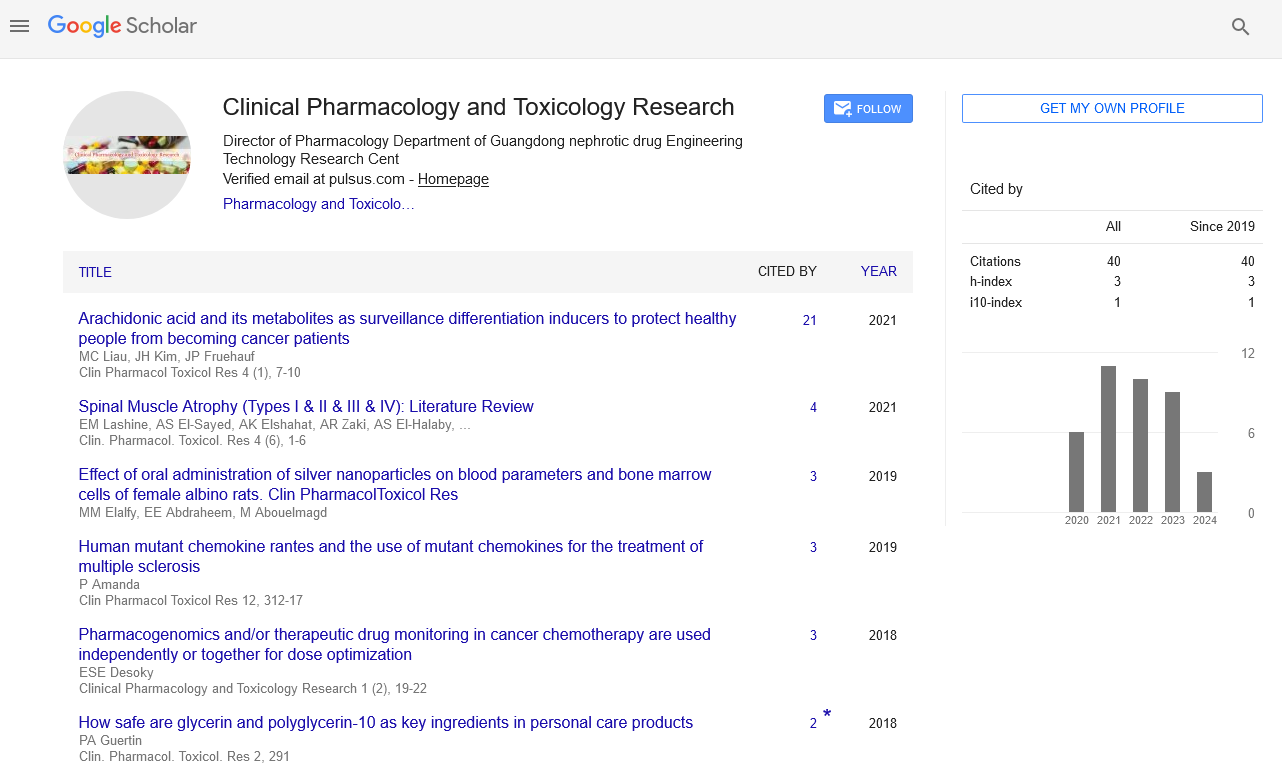Morphine significance in cancer surgery
Received: 01-Jan-2021 Accepted Date: Jan 17, 2021; Published: 25-Jan-2021
Citation: Henry J. Morphine significance in cancer surgery. Clin Pha rmacol Toxicol Res. 202 ;4(1):11
This open-access article is distributed under the terms of the Creative Commons Attribution Non-Commercial License (CC BY-NC) (http://creativecommons.org/licenses/by-nc/4.0/), which permits reuse, distribution and reproduction of the article, provided that the original work is properly cited and the reuse is restricted to noncommercial purposes. For commercial reuse, contact reprints@pulsus.com
Introduction
Morphine is a commonly used opioid drug for the treatment of severe ca n c e r pain. In spite of its entrenched effectiveness, it is also often used in clinical practice, especially outside the specialist palliative care. Morphine is used to relieve pain in ca n cer patients in one form or another for centuries .
International developmental work which is coordinated by the World Health Organization has created a global health policy document for the management of cancer pain and treatment
Cancer pain is an example for disease status and has an experimental meaning with the introduction of morphine becoming a metaphor for imminent death. Cancer pain is interrelated with its perception and reporting influenced by the people with whom the patient interacts. There is a possibility of affecting the tumor recurrence and metastasis in cancer surgery with the usage of morphine. The two recent retrospective clinical trials indicate that anesthesia is beneficial in breast cancer and prostate cancer surgery.
Morphine is responsible for the higher recurrence and mortality rate when observed in the general anesthesia/opioid analgesia groups. The results of several retrospective studies and a randomized prospective trial failed to confirm any usage for regional anesthesia/analgesia over general anesthesia and opioid analgesia. As the surgical stress and pain increases, there is a lot of importance for the usage of analgesics. Morphine may also cause harm to cancer patients. Anxiety is the most common effect which is seen in patients or health care professionals during surgeries. Even though morphine is the most commonly used analgesic drug, it is prescribed to only some people.
Retrospective Study
There has been increased interest surrounding the likelihood that morphine shouldn't tend perioperatively to cancer surgery patients. One among the hypotheses proposed to elucidate these results has involved the opioid-sparing effect of regional anesthesia/analgesia, and thus the idea that morphine could be a minimum of partially liable for the upper recurrence and death rate within the overall anesthesia groups, which received opioid analgesia.
Several methods for undertaking syntheses of diverse research methods are developed, one approach to which is Critical Interpretive Synthesis (CIS). CIS may be a new method of reviewing, which pulls on the processes of traditional systematic review methodology while incorporating a qualitative tradition of inquiry. Using CIS to synthesize a various body of evidence enables the generation of theory with strong explanatory power.
Recent retrospective studies are conducted to unveil potential significant differences in cancer recurrence and or metastasis after surgery with regional or general anesthesia. Two retrospective studies on breast and prostatic adenocarcinoma showed that cancer recurrence rate was lower when general anesthesia was supplemented with regional anesthesia.
Whether a simple modification of the anesthetic technique and postoperative pain management can improve survival of cancer surgery patients could also be a highly important question awaiting the results of these prospective trials. Several randomized controlled clinical trials are still ongoing to assess the possible effect of anesthetic technique on the course of cancer, which might be tumor site-specific. These studies are following up the recurrence, metastasis, and mortality rates in patients randomized to receive either general or regional anesthesia/analgesia for surgical removal of varied kinds of cancer in multiple clinical centers.





